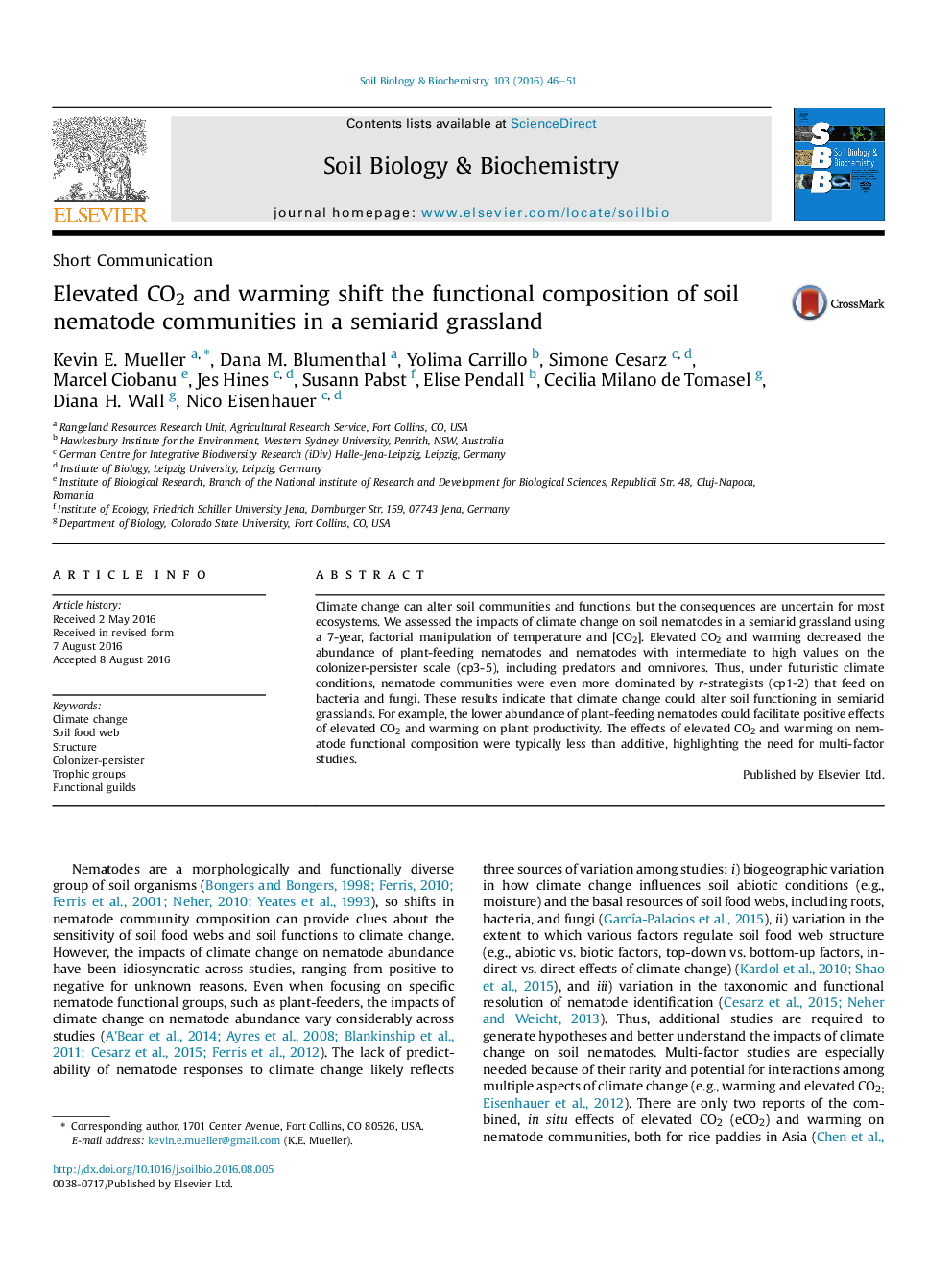| Article ID | Journal | Published Year | Pages | File Type |
|---|---|---|---|---|
| 8363181 | Soil Biology and Biochemistry | 2016 | 6 Pages |
Abstract
Climate change can alter soil communities and functions, but the consequences are uncertain for most ecosystems. We assessed the impacts of climate change on soil nematodes in a semiarid grassland using a 7-year, factorial manipulation of temperature and [CO2]. Elevated CO2 and warming decreased the abundance of plant-feeding nematodes and nematodes with intermediate to high values on the colonizer-persister scale (cp3-5), including predators and omnivores. Thus, under futuristic climate conditions, nematode communities were even more dominated by r-strategists (cp1-2) that feed on bacteria and fungi. These results indicate that climate change could alter soil functioning in semiarid grasslands. For example, the lower abundance of plant-feeding nematodes could facilitate positive effects of elevated CO2 and warming on plant productivity. The effects of elevated CO2 and warming on nematode functional composition were typically less than additive, highlighting the need for multi-factor studies.
Related Topics
Life Sciences
Agricultural and Biological Sciences
Soil Science
Authors
Kevin E. Mueller, Dana M. Blumenthal, Yolima Carrillo, Simone Cesarz, Marcel Ciobanu, Jes Hines, Susann Pabst, Elise Pendall, Cecilia Milano de Tomasel, Diana H. Wall, Nico Eisenhauer,
